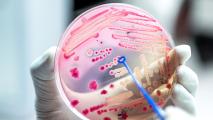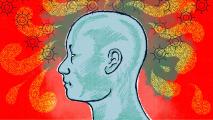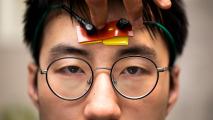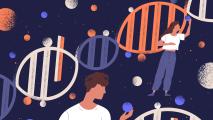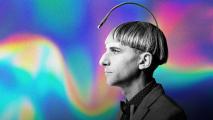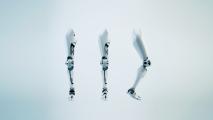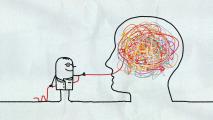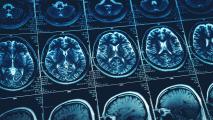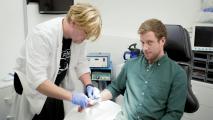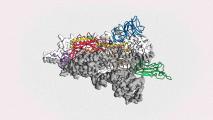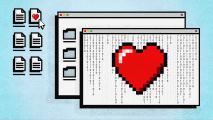
Biotech
Human history has been all but defined by death and disease, plague and pandemic. Advancements in 20th century medicine changed all of that. Now advancements in 21st century medicine promise to go even further. Could we bring about an end to disease? Reverse aging? Give hearing to the deaf and sight to the blind? The answer may be yes. And soon.
More
Data scientists are making it easier to track COVID-19
Teams of computer scientists across the globe are working tirelessly to help track COVID-19 through the use of computer modeling and data dissemination.
Can an algorithm predict the next disease outbreak?
Researchers are using this algorithm to predict which regions are likely to see a zoonotic disease outbreak, and hopefully prevent the next global pandemic.
AI helps scientists discover powerful new antibiotic
Using a computer model powered by artificial intelligence, researchers at MIT have identified several promising candidates for powerful new antibiotics.
Series|
Dope Science
I use ketamine for depression – here’s how it works
Commonly known as a party drug, ketamine’s powerful effects on the brain have led doctors to further explore its medical potential. Now, the animal anesthetic is providing relief and hope for people with severe depression.
New lasers see into the brain to detect concussions
Researchers are attempting to improve the age-old concussion test with a device that can measure CCO levels in the brain using infrared lasers.
$100 genome sequencing has finally arrived
China-based genome sequencing company MGI says it can sequence a human genome for just $100, a cost that could make the service available to all.
Intro to LSD
LSD, also known as acid, is a synthetic chemical that causes hallucinations, synesthesia, and sometimes, distress – the dreaded “bad trip.”
Series|
Biohackers
The cyborg artist who hears color
Neil Harbisson was born colorblind. Now he has an antenna implant in his skill to hear color and create beautiful works of art.
Run faster, think better: Hugh Herr on the future of bionics
Hugh Herr, head of Biomechatronics research at MIT and hailed as a bionic pioneer, is working to close the gap between synthetic limbs and the brain.
Cancer survivor gives birth thanks to a new fertility procedure
A French cancer survivor is the first person to give birth via a fertility treatment that involves freezing and thawing eggs that underwent in vitro maturation.
New PTSD therapy dulls the sting of painful memories
A Canadian researcher’s reconsolidation therapy is helping people overcome PTSD by allowing them to edit painful memories to be less emotionally impactful.
Scientists are developing brain implants that improve memory
New research sheds hope for sufferers of traumatic brain injury, Alzheimer’s, and for all of us, old age.
Biohacker’s prosthetic arm lets him play a synthesizer with his mind
Biohacker Bertolt Meyer has built the SynLimb, a controller that attaches to his prosthetic arm, allowing him to control his modular synthesizer with his mind.
China is responding to the coronavirus in a way only China could
China is using its vast surveillance network and near-total control over citizens to respond to the COVID-19 coronavirus outbreak in a way perhaps no other nation could.
Series|
Biohackers
I got a chip implanted in a biohacking garage
Hacker surgeons like Jeffrey Tibbetts implant everything from compasses to wireless routers. Freethink’s own Chase Pipkin decided to try it out.
Experts unveil “breakthrough” map of key coronavirus protein
Scientists have created the first atomic-scale 3D map of 2019-nCoV’s spike protein, the part of the coronavirus that infiltrates human cells.
Stimulating monkeys’ brains snaps them out of unconsciousness
Researchers found that they could induce a state of consciousness in an unconscious monkey by electrically stimulating a specific part of the animal’s brain.
MDMA effects, risks, and rewards explained
MDMA, also known as Molly or Ecstasy, is a synthetic psychoactive drug. MDMA effects include enhanced pleasure and a heightened sense of touch and sound.
How to make 100 million doses of coronavirus vaccine in a year
Creating a new vaccine is slow and expensive. One biotech firm thinks a “plug-and-play” vaccine could change that.
Hacking the Tinder algorithm to find love
Dating apps are really good at introducing you to lots of people, but they might not be the best way to find a lifelong partner. Can we decode our data to get better results?
Get inspired with the most innovative stories shaping the world around us.















